|
Welcome Lyra! Thanks for taking some time to chat about writing. First, a few quick-fire questions: What is your favorite coffee shop in the world? Who is your favorite 18th century rogue? And if you could have one of the treasures that Loki convinced the dwarves to forge for the gods to save his own neck then which one would it be? Thank you so much for having me! Let’s see, my favorite coffee shop in the world would have to be Demel, which is a cafe in Vienna, Austria, and has THE BEST pastries I’ve ever eaten. My favorite 18th century rogue is the Italian adventurer—and all around awful man—Giacomo Casanova. Seriously A+ rogue. Who else would you find selling counterfeit mercury? Love him forever. And if I could have any treasure made by the dwarves... hmmm... that would have to be Gullinbursti, because you’d always have a great conversation starter, and never need a flashlight again. "My favorite 18th century rogue is the Italian adventurer—and all around awful man—Giacomo Casanova. Seriously A+ rogue." You and I share a love of Norse Mythology; in particular, your work focuses on the trickster god Loki. What elements of Loki’s character do you hope to highlight in The Nine Worlds Rising? Are there any misconceptions you want to challenge? What is it about this Norse god in particular that keeps you coming back to write more books? The elements of Loki’s character I hope to highlight in my series are really his complexities. He is a trickster. He is capable of doing both good and bad, helping or hindering. Because his nature is chaos, that chaos ends up affecting everyone and everything around him, and not always for the best. I mean, he does try his hardest, but...there’s still probably a 9 out of 10 chance whatever choice he makes is going to result in some cataclysmic event. But that’s the point, Loki just can’t help himself and keeps getting in his own way, preventing himself from ever having any kind of peace, which, in my series, is truly all he wants. The main misconception about Loki I try to challenge is that he is “the bad guy.” I mean, yeah, Ragnarok wasn’t great, but Loki in the mythology is definitely a figure you can see grow darker and darker as he’s continually pushed, proded, ostracized, and, you know, tied to a rock with his son’s entrails and snake venom dripping over his face. That would give anyone a major case of the grumpies. Villains aren’t born, but made. And I see Loki the “World Breaker” being the creation of the Aesir’s own greed, lies, and broken oaths. As I mentioned earlier, his complexities are an enigma to me I can’t help but explore and try to figure out. Being an outsider also makes Loki relatable and sympathetic, which is only increased when you factor in his own nature forcing him into a cycle of causing pain which he can’t ever seem to escape from. However, there is also the darker side of him. That razor edge filled with spite and danger that takes pleasure in crashing parties and airing out everyone’s dirty laundry. With Loki, there is always a new layer to explore, whether it's trying to figure out his motives to end the Nine Worlds, or answering the question: How would things have been different had the gods shown more (a lot more) compassion? "Being an outsider also makes Loki relatable and sympathetic, which is only increased when you factor in his own nature forcing him into a cycle of causing pain which he can’t ever seem to escape from." I have to go on a quick tangent here because you and I share a connection to the wonderful country of Switzerland as my mother’s family emigrated to Florida from St. Gallen. You have a wonderful description of Basel Leckerli (essentially Swiss gingerbread) on your website. What are some of your other favorite Swiss delicacies? That’s so awesome we share a Swiss connection! Having grown up in a household with a Swiss father, and now living with a Swiss spouse, there is never any shortage of Swiss goodies. Some of my favorite delicacies are Basler Brunsli, which are chocolate almond cookies, and kirsch filled chocolates called Kirschstengeli. On the savory side of things, I will never say no to a good rösti (basically Swiss hashbrowns), or raclette (melted raclette cheese poured over boiled potatoes). Many authors dream of writing a fantasy series such as you have with multiple books filling out the incredible universe of The Nine Worlds Rising. What advice do you have for authors who are right at the beginning, drafting their first book or simply world-building as they brainstorm? Ask yourself questions and daydream. Daydream as much as you can, and start exploring the small parts of your new world first, as this helps to not overwhelm you—you don’t need to know currency systems on day 1. With this in mind, relax and daydream just about a character’s bedroom. Where is it? What’s inside? (Bonus, this also helps you figure out your character!) Say you notice a collection of pink porcelain piggy banks. Where did they get them? Maybe they got them at the marketplace. Oh, there’s a marketplace in this world? Go there. What other wares do you see? What else is being traded at the market? (See, these might provide clues as to the culture). Is the climate warm or cold? Do people ride horses or dinosaurs? Oh, there are dinosaurs? WELL, now you have an entire NEW set of questions to think and daydream about...Rinse and repeat. Write down notes of what you see, feel, and smell. Trust your intuition. Soon, a world will start to emerge and you can have a fun and stress free way of bringing your story to life. Truth and Other Lies is the first book in your Nine Worlds Rising series and features the mischievous exploits of the Norse trickster god Loki. In what ways are reader responses to this book fulfilling your hopes for it and in what ways did reader responses surprise you? The response I’ve gotten from readers has been beyond all my hopes. They see and understand he is a complex character. He’s a product of not trusting others, and continually having his heart destroyed. Loki does a lot of not great stuff, as you said, “mischievous exploits,” but at the end of the day, he tries to do the right thing. Now, is this only because Thor is going to strike him with his hammer? Probably. All joking aside, this is a major question I try to ask in the series. Is Loki capable of selfless goodness? Readers are giving Loki a chance and taking this journey with him. "All joking aside, this is a major question I try to ask in the series. Is Loki capable of selfless goodness? Readers are giving Loki a chance and taking this journey with him." As far as how reader responses have surprised me...Let’s just say I made a very unconventional choice in explaining Odin’s reason for bringing Loki into Asgard. I wasn’t sure what the reaction would be, and I braced myself for ALL CAPS EMAILS. But I’ve been absolutely delighted how readers have embraced their story, and how I’m trying to explore the myths through this new lens. The Order of Chaos and That Good Mischief are Books 2 & 3 in The Nine Worlds Rising. I know that when I wrote The Everspring and The Elder Trees, Books 2 & 3 of The Saga of Torin Ten-Trees, it was a completely different experience as compared to the first. What elements of the writing process during the first book coincided with the second and third? What parts of the experience differed? And what did you take away from the process of completing the sequel? The one aspect of the writing process that remains the same over all books is that I keep to a “three main draft” structure. That is, after I collect my mess of notes and construct a synopsis, which gives me an overview of the story and I can more easily swap things around, I then write a quick first draft, which takes me around five weeks. After letting it sit a bit, I return to it and that’s when I do my main revision, implementing all the changes I kept track of while fast drafting version 1. This takes me the longest, and is also the hardest part of the process, as I’m merging in a bunch of things and small changes have big ramifications. This completed draft 2 is actually readable and is what I send to my editor. Draft 3 is me making smaller changes based on my editor’s feedback, as well as a beta reader’s. After that, it’s all the fun* detailed work like hunting down overused words, making sure character’s eye colors don’t change, etc. (*It is not fun.) "The one aspect of the writing process that remains the same over all books is that I keep to a “three main draft” structure." Now, how it has differed is more in the way I’ve learned to streamline and just learning more about my own process and how to optimize. Note apps have been a game changer for me vs writing fifty pages of random blips. This allowed me to make the first draft for book 2 and 3 much faster than it went for book 1, which took me about a year. Of course, a book 1 is always trickier as that’s the book where you are still learning about who your characters are, and the world they inhabit. What I took away with completing the sequel is a peace knowing that the characters have really come into their own. Whereas we were still getting to know each other in book 1—me trying to set up their story lines. Them throwing tantrums about it— with book 2, they were truly living and breathing and I more or less listened and wrote it down. Book 2 and 3 have honestly become more or less me giving my character’s therapy. I see what their troubles are, how I would LIKE them to be at the end of their arc, and see what I can do to help them get there—usually this is me just making the most awkward situations I can think of to force them to talk about their demons, or as Loki would call it, “icky” feelings. Can you give us a sneak peek of what your next major project will be? Will The Nine Worlds Rising continue or will you start a new series? Any hints or perhaps a little snippet to get readers excited? I am definitely continuing on with this series! It is pretty much all I live and breathe now. I am finally nearing the end of the second revision of That Good Mischief, and I also have a new novella slated for release this fall called Thunder, Blood, and Goats. I am trying to fill out this world as much as I can, and I’m loving every second of it. Of course, there is another super big project coming later this summer that I think a lot of people will enjoy, but right now it is also super secret. SO, stay tuned on my social media and/or newsletter for that announcement! I really can’t wait! BUT, as far as snippets go...I think I can share a little something from That Good Mischief. In this scene, Odin and Loki find themselves in a tavern in a lawless port town on the outskirts of Asgard. Unfortunately for Loki, some people really hold a grudge...
Last, but not least, where can readers find your work and keep up to date on your latest publications? Readers can find me on Amazon, as I’m currently exclusive with them through KU. I keep my website up to date, and send out a monthly newsletter (subscribers get a free novella, btw!) Otherwise, they can simply follow me on social media, where I post frequently.
0 Comments
Welcome Desi! Thanks for taking some time to chat about writing. First, a few quick-fire questions: Sweet or Spicy? Skiing or swimming? And if you could jump 1000 years into the future or into the past for a day then which would you choose and why? I most definitely prefer spicy. My dad used to pay my brothers and I a dollar for every hot pepper we could eat whole. As far as skiing is concerned, I’ve never gone. It’s on my bucket list, but I do love to swim. I have an affinity for the water. And, the last question is an overly-zealous huzzah for the past. I’m a historical fantasy nerd, and damn proud of it. "I’m a historical fantasy nerd, and damn proud of it." What is your creative process like? Is it explosive and exploratory? Is it carefully calculated and scheduled? Do you stick to a writing schedule or do you write around other commitments in your life? With three kids and a mountain of never-ending laundry, I have to write around my other commitments, but since my creative process verges on obsessive, I will forego sleep to get it done. I live inside my head, planning and plotting scenes there until I’m ready to put the notes to paper. I’ll often start by researching an era and all of the culture that goes with it. Once the ideas start sparking, it usually takes off like a wildfire. I can’t type fast enough. That’s when the obsessiveness kicks into overdrive to plot characters, arcs, and then scenes. It’s both wild and calculated. "Once the ideas start sparking, it usually takes off like a wildfire. I can’t type fast enough... It’s both wild and calculated." Besides writing novels you have also written and directed plays for live-stage theater. In what ways has your work in theater changed your perspective as a writer and how this influences your writing? No matter the project, the end goal is the same for me: I want both an audience or a reader to walk through the production or story like it’s their own. I want them to feel something that doesn’t let them go for a while. Regardless of the medium, the satisfaction of tears streaming down an audience member’s face or a review from a reader who wants the next story is something I almost can’t describe. "No matter the project, the end goal is the same for me: I want both an audience or a reader to walk through the production or story like it’s their own." One of my favourite writers is Mary Robinette-Kowal who co-hosts the podcast Writing Excuses alongside the celebrated fantasy author Brandon Sanderson. Her insights on the podcast have really opened my eyes to many of the gender-biases in Sci-Fi and Fantasy that I was blind to before. Are there any glaring biases that you think need to be addressed in the genre right now? Considering that history has predominantly been written and recorded by caucasian men, I find it exhilarating to recover lost stories of women and minorities who were anything but submissive and in the background. They are heroes. They are leaders. They are pillars of history. And, their stories deserve to be told. Your upcoming book Bindle Pink Bruja is a story featuring elements of Mexican folklore involving a jazz club owner in the age of Prohibition. Honestly, I have a hard time imagining a setting more vivid than that for a historical novel infused with magic. How did the setting and the characters evolve in your mind? Did any particular historical figure or folktale inspire the story? So as not to give too much away, I will merely tell you that the story was inspired by two things: an old tale involving magic dirt, and my own family’s journey to and within Kansas City’s Hispanic communities in the early 1900s. One of the characters, an old abuela, is fashioned after my own great grandmother while the MC is a mirror of myself. The book also includes a few cameos of Al Capone and an infamously crooked councilman from Kansas City, Tom Pendergast. Through the online writing community, particularly accounts like Folklore Thursday (@FolkloreThurs) on Twitter, I have learned about so many interesting characters, creatures, and tales from folk culture all around the world. If someone were to dive into the world of Mexican folklore which story or book would you suggest they start with? Take a walk through Mexican Gothic, Gods of Jade and Shadow, and The Beautiful Ones if you’re looking for fictional novels. But, there are so many books out there that have everything from ancient Latin American folklore to scary stories, and common Hispanic folktales, it’s hard for me to choose just one. You also work as a managing editor for EveryWriter. As new writers try to break into the literary scene it is important that they query agents with well-polished manuscripts. However, staring at long documents for hours on end can give writers ‘snow blindness’ to their own mistakes. Do you have any sage tips for error-catching while proofreading? I do a couple of things during editing before querying. Actually, I do all of this editing before even giving my work over to beta readers. First, I’ll do a content edit for each scene, making sure they meet their goal in contributing to the story, and cut out unnecessary or clunky prose. Then, I’ll run the scene through Grammarly to find line edits I may have missed. Lastly, I’ll wait a couple of weeks to let my mind rest, and then do a read-aloud edit. Reading your work out loud makes a world of difference. "Reading your work out loud makes a world of difference." Where can readers keep track of your latest writing and stay up to date on the publication of Bindle Pink Bruja? Look out for the release of Bindle Pink Bruja in 2022 from Harper Voyager!
Know that this article was inspired by recent and very real events. A few weeks ago I received an edited manuscript from a very patient editor, almost three-hundred pages absolutely covered in red-slashed edits. Flipping through it was like fast-forwarding through a B-grade slasher film. A few days later, I got a review back from a female beta-reader who said that the mother in the story wasn’t landing properly and that a risk I took near the end, a scene that was meant to be the narrative climax of the second book, bored her. Double ouch. So let’s get real about what the editing process is like and how to survive it. "...almost three-hundred pages absolutely covered in red-slashed edits.
Principle 1: Force equals mass times acceleration.Application to Bar Fights: Big people (i.e. big mass) don’t have to move very fast (i.e. low acceleration) to throw forceful punches. Small people (i.e. small mass) need to strike extra fast (i.e. high acceleration) to hit with the same kind of force.
By the way, this rule also explains why sugar-coated feedback (i.e. low acceleration) is not helpful. It doesn’t matter if you are dealing with a big mass or a small mass; if it’s moving really slowly it isn’t going to hit with noticeable any force. "...get strangers or friends-of-friends (i.e. small mass) to review it in order to lessen the force when those criticisms hit." Principle 2: Force can also be viewed as change in momentum over time.Application to Bar Fights: Bones don’t break because they are moving really fast. Bones don’t break because they stop moving. Bones break because they go from moving really fast to a complete stop really quickly. It’s the difference between being shoved up against a wall and being thrown into it.
Principle 3: Intensity of impact is proportional to an object’s rigidity.
"This principle is also the reason you can go diving into a pool of water but not into a pit of gravel." Application to the Editing Process: The more nervous you are about others critiquing your work (i.e. rigidity) the harder their criticism is going to hit you. This is unfortunate because that means your own fear of criticism is proportional to how much it is going to hurt when it inevitably comes crashing into you. So don’t tense up. Pretend you are someone else looking at your work. Even better, treat the work as if it was someone else’s story or poem. The more you can relax into the idea that your story is going to take a few hits, the more efficiently you can spread the impact of that criticism around. "Pretend you are someone else looking at your work.
|
AuthorJoshua Gillingham is an author, editor, and game designer from Vancouver Island, Canada. Archives
April 2022
Categories
All
|

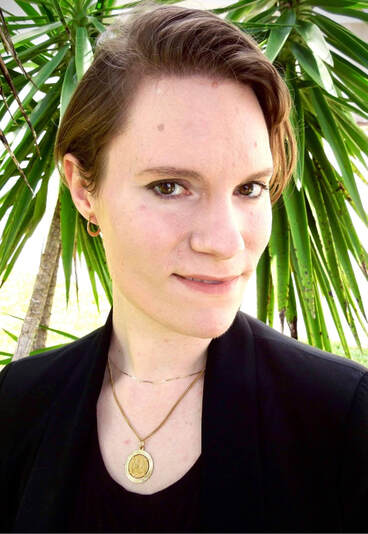


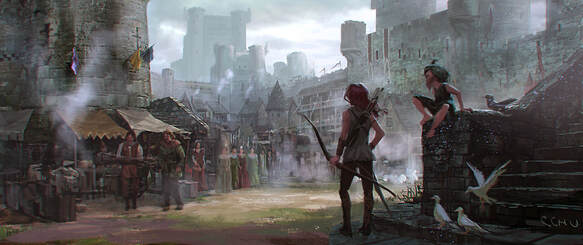
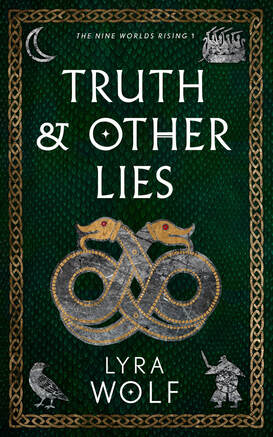
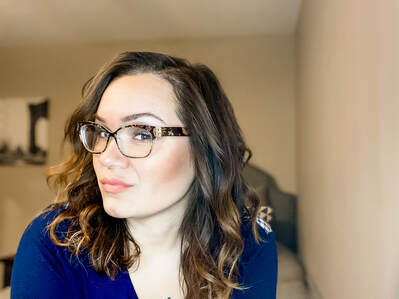
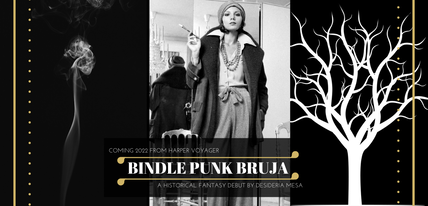
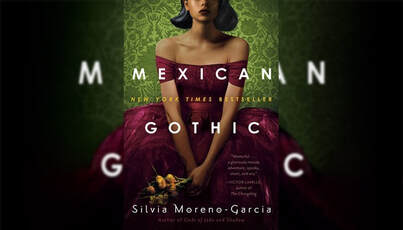

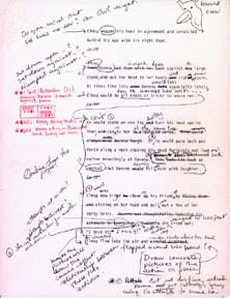
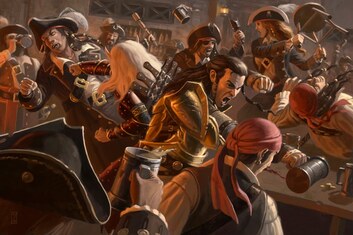
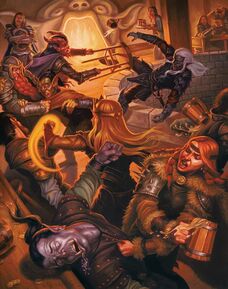
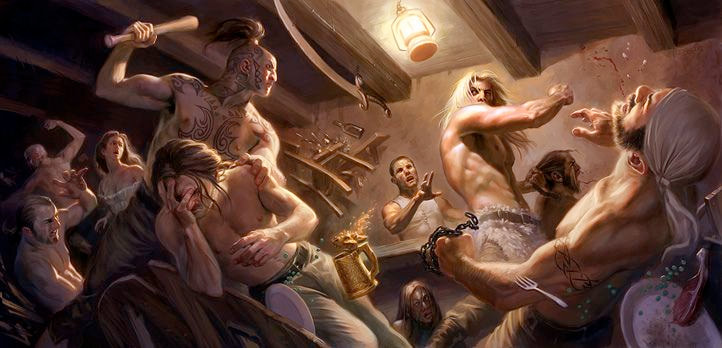
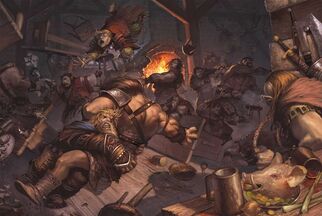
 RSS Feed
RSS Feed
